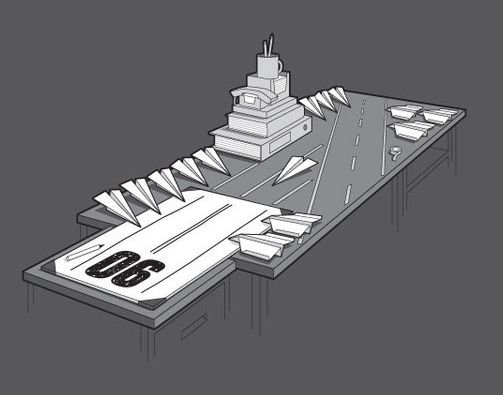
Kenneth Goldsmith (in his article dated 10 Apr 2010) remarks that “[t]he office is the next frontier of writing”—and with this claim, he extends his infamous argument that, within the corporatized, technocratic spaces of the modern milieu, the act of poetry itself has now become little more than an automated procedure, not much different from the experience of either data management or word processing. Poets, for him, have become copyists, labouring away in a nightmarish scriptorium, cutting-and-pasting words in a welter of prefab speech, all manufactured at a prodigious, industrial scale by means of plagiaristic appropriation and computerized recombination. The romantic bastions of both sublime creativity and eminent authorship almost seem ready to collapse in the face of such superabundance.
When Goldsmith goes on to aver that “[c]ontemporary writing requires the expertise of a secretary crossed with the attitude of a pirate,” he suggests that, within this capital economy, poetry must become an occasion to accent, if not to resist, the alienation suffered everyday within the ennui of our cubicles. To this end, he exploits the scanners and printers on the average desktop, using them capriciously for subversive intentions, elevating the outright thievery of plagiarism itself to a sovereign, aesthetic value. We might see, in all his paeans to both paper and toner, an argument for the legitimacy of petty theft in the office—so long as such crimes allow for the dormant photocopiers to become vibrant micropresses, churning out some pirated edition of poetry for immediate digitization and universal distribution.
Even the poet Derek Beaulieu in his book Fractal Economies has gone so far as to argue that to write is to print “a record of the waste produced by the consumption […] of a text by a machine” (PDF)—and thus, for him, poets do not synthesize poetry so much as they transcribe output, misusing the appliances of capitalism in order to reclaim such devices for artistic purposes. Even the poet Rachel Zolf in her book Human Resources recombines readymade fragments of bizspeak from her job, using both online devices and search engines in order to augment mechanically the outcome of these permutations: “given enough input elements, a writing machine can spew about anything: private jets, exquisite gardens, offshore-banking havens….” The spambots, in fact, now make and send more text online than all of humanity itself.
Such mischief, as advocated by Goldsmith, reminds me of the toymaker John Austin, who teaches bored, geeky workers to construct, out of paraphernelia in their cubicles, an armamentarium of weaponry (catapults, ballistas, etc.), so as to squander downtime at work by staging desktop battles. Such calls for poetic whimsy in the workplace also remind me of the composer Stefan Helmreich, who makes music out of the sounds of xerographic reproduction, transforming the noise of mechanized alienation into a hypnotic symphony. We poets may have to take our cues from such playful moments of corporate rebellion, doing so by systematically reconditioning our business machines, forcing them to write texts more radical than the kind of stock chart designed to document the prevailing sentiments of the marketplace….
Christian Bök is the author of Crystallography (Coach House Press, 1994), a pataphysical encyclopedia...
Read Full Biography

